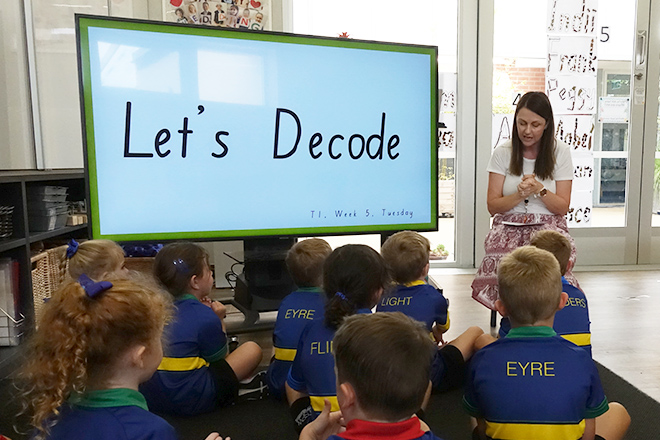When considering best practice in terms of how children are taught in schools, it is important to start with the question, “What do students most need from their time in school?”
The short answer is that students need to be literate and numerate to be able to actively and successfully participate in the world.
By explicitly teaching literacy and numeracy skills students will have the tools at their disposal to help them learn how to conduct inquiry, to be problem solvers and finders.
Support and Scaffolding
Children need to be able to communicate their learning and learn with and from others. They also need to be able to critically evaluate information and ideas. To support children in this journey they need to be taught how to do these things.

They need to be guided through the process. They need to see how experts approach these processes. They need opportunities to practise these skills with appropriate levels of support and scaffolding. They need to be given tools to use and be shown how and when to use them.
In order to equip students with the above mentioned tools, skills and to develop life-long learning dispositions, at St Peter’s Woodlands we have two distinct yet complimentary pedagogical approaches.
Explicit Direct Instruction
Our Explicit Direct Instruction (EDI) approach to teaching numeracy and literacy, encompasses research-based instructional practices explored by cognitive and educational researchers. It is an approach to teaching that is based on the premise that all children can learn and helps teachers deliver effective lessons that can significantly improve achievement in literacy and numeracy for all learners. Explicit Direct Instruction is characterised by carefully planned and sequenced lessons; clear and detailed instructions and modelling; and frequent and systematic monitoring of student progress and feedback to students.

Inquiry-based Learning
Inquiry-based Learning is a form of active learning that starts by posing questions, problems or scenarios. The overall goal is for students to make meaning. Inquiry-based learning is an approach to learning that emphasises the student’s role in the learning process. Rather than the teacher telling students what they need to know, students are encouraged to explore the material, ask questions, and share ideas. This approach to learning allows students to develop learning dispositions which will hold them in good stead to be life-long learners.

Project RISE: Research-driven, Innovative, Student-centred, Extraordinary
Project RISE is a bespoke learning framework developed by St Peter’s Woodlands and designed to provide the very best learning environment and outcomes for each and
every student. Project RISE blends two teaching pedagogies: explicit instruction and inquiry learning to teach the Australian curriculum and to develop and instill these qualities.
By using a combination of the above mentioned pedagogies, and actively seeking feedback from our students to monitor the effectiveness of our teaching, St Peter’s Woodlands is committed to paving the way for a successful learning journey for each and every child.
Article by Principal, Helen Finlay